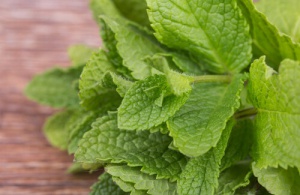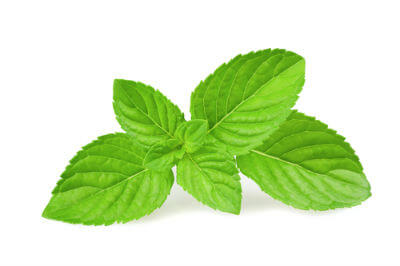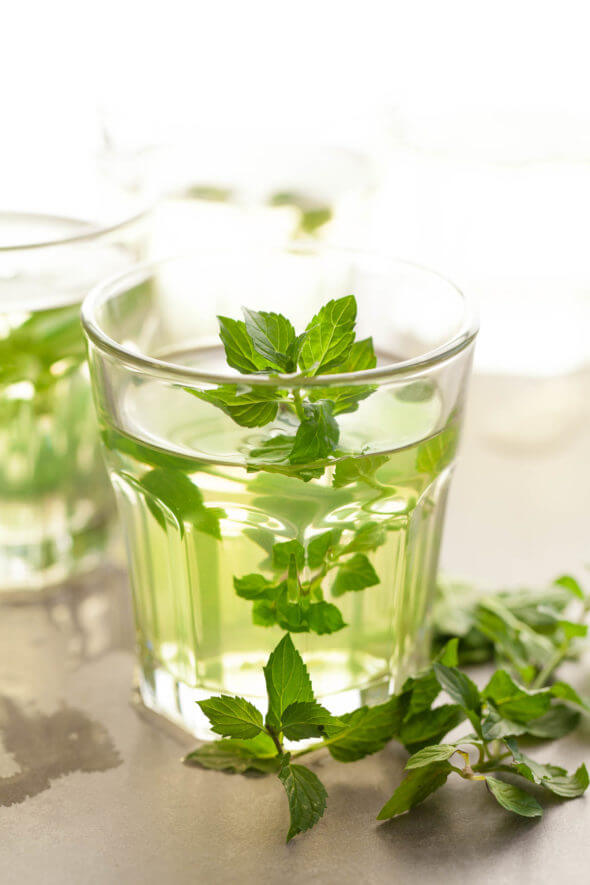The Medicinal Properties and Benefits of Mint

Mint is also known as mentha, spearmint and peppermint. It is a plant that is regularly used in the preparation of certain dishes, mainly to give them aroma. Certain medicinal drinks and cocktails also contain this special plant. The properties and benefits of mint are many and varied.
Many therapeutic treatments use this therapeutic plant because of its multiple benefits and its numerous properties that contribute to good health.

Benefits of mint
- One of the most important properties and benefits of mint is that it helps to combat digestive problems. This is especially true in cases of indigestion, flatulence and stomach pain or colic.
- It is also important for the treatment of the respiratory tract because it contains certain components that are powerful expectorants.
- This medicinal herb is quite effective when treating menstrual cramps.
- Mint contains components that are very effective for treating anxiety problems. These same components act by relaxing us and preventing possible consequences of this condition.
- Mint is very effective as an antiseptic and painkiller. Because of this, we recommend its use in the treatment of injuries. How can we use it in this way? By preparing an infusion that is full of mint, we can clean a wound, feeling immediate relief from the pain and helping to cure it more quickly. In addition, we can use it on certain types of burns. For the treatment of burns, mixing the infusion with a small amount of olive oil is very effective. You then need to apply this mixture directly to the burn, which helps to avoid stinging and a possible infection.
- This wonderful plant is very effective in eliminating bad breath. The reason for this is that the scent of mint is very pleasant and it can stay with you for the whole day. Menthol, one of its main components is excellent for this purpose. Furthermore, it is very refreshing.
- Using mint, you can prepare a delicious and relaxing tea to drink before bedtime. This helps us to have a peaceful, relaxing and restorative sleep.
- Mint infusions come highly recommended in order to eliminate gases found in the digestive tract, which can produce flatulence.
Read more: Discover the Uses and Properties of Mint

Preparing mint infusions
Preparing an infusion with mint is quite simple. You just need to keep in mind that the leaves that you are going to use must be soft or tender. After that, boil a pint of of water (leaving a few tender mint leaves to the side in a pitcher). When the water is boiling, add it to the pitcher containing the mint leaves and cover it for about twenty minutes.
After that, strain the mixture using a colander and you can drink your first cup of mint tea (of the three that you should drink every day).
Read more: Home Remedies with Spearmint Leaves
In summary…
You have seen the many benefits of min, a plant that most people believe is only good for stomach pains and for flavoring foods. It is very important for us to take an interest in discovering the great benefits that medicinal plants can offer to our health.
Moreover, it is good to know that with plants, we don’t experience problems of side effects. However, we must pay attention to recommendations regarding sensible usage.
All cited sources were thoroughly reviewed by our team to ensure their quality, reliability, currency, and validity. The bibliography of this article was considered reliable and of academic or scientific accuracy.
- Alammar N, Wang L, Saberi B, Nanavati J, Holtmann G, Shinohara RT, Mullin GE. The impact of peppermint oil on the irritable bowel syndrome: a meta-analysis of the pooled clinical data. BMC Complement Altern Med. 2019 Jan 17;19(1):21.
- Chumpitazi BP, Kearns GL, Shulman RJ. Review article: the physiological effects and safety of peppermint oil and its efficacy in irritable bowel syndrome and other functional disorders. Aliment Pharmacol Ther. 2018 Mar;47(6):738-752.
- El Menyiy N, Mrabti HN, El Omari N, Bakili AE, Bakrim S, Mekkaoui M, Balahbib A, Amiri-Ardekani E, Ullah R, Alqahtani AS, Shahat AA, Bouyahya A. Medicinal Uses, Phytochemistry, Pharmacology, and Toxicology of Mentha spicata. Evid Based Complement Alternat Med. 2022 Apr 12;2022:7990508.
- Göbel H, Heinze A, Heinze-Kuhn K, Göbel A, Göbel C. Oleum menthae piperitae (Pfefferminzöl) in der Akuttherapie des Kopfschmerzes vom Spannungstyp [Peppermint oil in the acute treatment of tension-type headache]. Schmerz. 2016 Jun;30(3):295-310. German.
- Hamzeh S, Safari-Faramani R, Khatony A. Effects of Aromatherapy with Lavender and Peppermint Essential Oils on the Sleep Quality of Cancer Patients: A Randomized Controlled Trial. Evid Based Complement Alternat Med. 2020 Mar 25;2020:7480204.
- Haghgoo R, Abbasi F. Evaluation of the use of a peppermint mouth rinse for halitosis by girls studying in Tehran high schools. J Int Soc Prev Community Dent. 2013 Jan;3(1):29-31.
- Herbal remedies for dyspepsia: peppermint seems effective. Prescrire Int. 2008 Jun;17(95):121-3.
- Horváth G, Ács K. Essential oils in the treatment of respiratory tract diseases highlighting their role in bacterial infections and their anti-inflammatory action: a review. Flavour Fragr J. 2015 Sep;30(5):331-341.
- Kennedy D, Okello E, Chazot P, Howes MJ, Ohiomokhare S, Jackson P, Haskell-Ramsay C, Khan J, Forster J, Wightman E. Volatile Terpenes and Brain Function: Investigation of the Cognitive and Mood Effects of Mentha × Piperita L. Essential Oil with In Vitro Properties Relevant to Central Nervous System Function. Nutrients. 2018 Aug 7;10(8):1029.
- Lee MS, Lee HW, Khalil M, Lim HS, Lim HJ. Aromatherapy for Managing Pain in Primary Dysmenorrhea: A Systematic Review of Randomized Placebo-Controlled Trials. J Clin Med. 2018 Nov 10;7(11):434.
- Lopresti AL, Smith SJ, Drummond PD. Herbal treatments for migraine: A systematic review of randomised-controlled studies. Phytother Res. 2020 Oct;34(10):2493-2517.
- Masoumi SZ, Asl HR, Poorolajal J, Panah MH, Oliaei SR. Evaluation of mint efficacy regarding dysmenorrhea in comparison with mefenamic acid: A double blinded randomized crossover study. Iran J Nurs Midwifery Res. 2016 Jul-Aug;21(4):363-7.
- Norrish MI, Dwyer KL. Preliminary investigation of the effect of peppermint oil on an objective measure of daytime sleepiness. Int J Psychophysiol. 2005 Mar;55(3):291-8.
- Oh KE, Song AR, Sok SR. Effects of Aroma Gargling, Cold Water Gargling, and Wet Gauze Application on Thirst, Halitosis, and Sore Throat of Patients After Spine Surgery. Holist Nurs Pract. 2017 Jul/Aug;31(4):253-259.
This text is provided for informational purposes only and does not replace consultation with a professional. If in doubt, consult your specialist.








